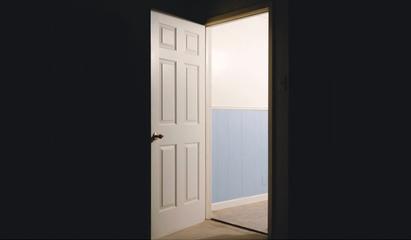What's the Best Loan for a First-Time Home Buyer?
Written by:
Mike Tassone
Mike is a Co-Founder and Chief Operating Officer of Own Up. He has expertise in all areas of residential lending, having led operations for a top 40 lender in the United States.
See full bio
Fact Checked by:
Patrick Boyaggi
Patrick Boyaggi
CEO an Co-Founder
Patrick is the Co-Founder and CEO of Own Up. He has a wealth of experience and knowledge as a mortgage executive.
See full bio

Fast Links
One of the biggest challenges that first-time homebuyers face is finding the best home loan to fit their unique needs. With so many loan options on the table, it can be difficult to know where to start.
The first step is to conduct thorough research to understand the different types of loans available.
Types of Loans
The major types of loans that first-time homebuyers can consider include conventional loans, FHA loans, VA loans, and USDA loans.
Conventional Loans
A conventional loan is one of the types of loans that helps people buy a home. It's not guaranteed or insured by the government like some other types of loans. Banks, credit unions, and other places that lend money usually offer these loans.
The good thing about a conventional loan is that it can be more flexible than other types of loans. You can choose how long you want to take to pay it back, and there are different kinds of conventional loans to pick from. Plus, a conventional loan can cost less upfront than other types of loans.
At the same time, it can be harder to qualify for a conventional loan because you need a better credit score and more money for a down payment. The rules for getting a conventional loan are also stricter than other types of loans.
FHA Loans
FHA loans are special loans that help people buy a house. The government makes sure the loan is safe for the bank that lends the money, so it's easier for people who might have trouble qualifying for a normal loan to get an FHA loan.
FHA loans can be good for people who are buying their first home or have a lower credit score. They usually require a smaller down payment than conventional loans and the rules for getting one are also a little more relaxed.
However, FHA loans may come with higher fees and you might have to pay more in interest over time.
VA Loans
VA loans are special loans that help people who served in the military or their families buy a house. The government promises to help pay back the loan if the borrower can't, so it's less risky for the bank that lends the money.
VA loans can be good because they usually require zero down payment on the house and are easier to obtain than a normal loan. And unlike conventional loans that typically require the buyer to pay an extra monthly insurance fee – called private mortgage insurance or PMI – if the down payment is less than 20% of the home purchase price, VA loans don’t penalize the buyer for small down payments. Interest rates on VA loans also tend to be lower than rates on conventional loans.
While there are many benefits to a VA loan, it’s still important to be aware of potential fees so you can plan accordingly. For example, homebuyers who take out a VA loan will be charged a one-time VA funding fee. VA funding fees exist to support the low-cost benefits of the VA loans; your individual fee will be calculated based on the size of your down payment.
USDA Loans
USDA loans are a type of mortgage loan that are guaranteed by the U.S. Department of Agriculture (USDA), a government agency in the United States. These loans are designed to help people in rural areas buy a home, although they can be available in some suburban areas as well.
USDA loans usually have lower interest rates and require no down payment, which can make them more affordable for people who want to buy a home but might not have a lot of money to put down. They also typically have lower credit score requirements than conventional loans.
USDA loans may have some restrictions, such as limits on the borrower's income or the size of the home they can purchase. Additionally, USDA loans may require the borrower to pay for mortgage insurance.
Let’s Compare
When searching for the best home loan for a first-time buyer, comparing lenders is a crucial step. Here are four factors to consider when comparing lenders:
1. Interest Rates and Fees
One of the most important factors to consider when comparing lenders is the interest rate they offer. A lower interest rate means lower monthly payments, which can help make home ownership more affordable in the long run.
Additionally, be sure to compare lender fees, such as origination fees, application fees, and appraisal fees. These fees can add up and significantly impact the overall cost of the loan.
2. Loan Options
Another key factor to consider when comparing lenders is the variety of loan options they offer.
While the type of loan you choose will largely depend on your individual needs, having a variety of loan options available can provide more flexibility and ensure that you find the loan that's the best fit for you.
A good lender should be able to provide you with a range of loan options and help you choose the one that fits your unique financial situation. By taking the time to research and compare lenders, you can find the best home loan for your first-time purchase and ensure that you're on the path to successful homeownership.
3. Experience
If you're a first-time homebuyer, working with a lender who has experience working with clients like you can make a big difference. Not only can they provide valuable guidance and support, but they can also help you find the best home loan for your unique needs.
4. Expert Support
That's where a professional mortgage advisor comes in. A mortgage advisor can offer personalized guidance and support, answer your questions, and help you navigate the complex world of home financing.
They can provide insight into different loan options, help you explore programs for first-time buyers, and assist you in understanding the terms and conditions of the loan. With the help of a trusted mortgage advisor, you can find the right home loan and take the first step towards homeownership.
Bottom Line
Ultimately, finding the best home loan for a first-time buyer requires research, comparison, and guidance from a trusted mortgage advisor. With the right loan and support, you can achieve your dream of homeownership and start building equity in your own property.


